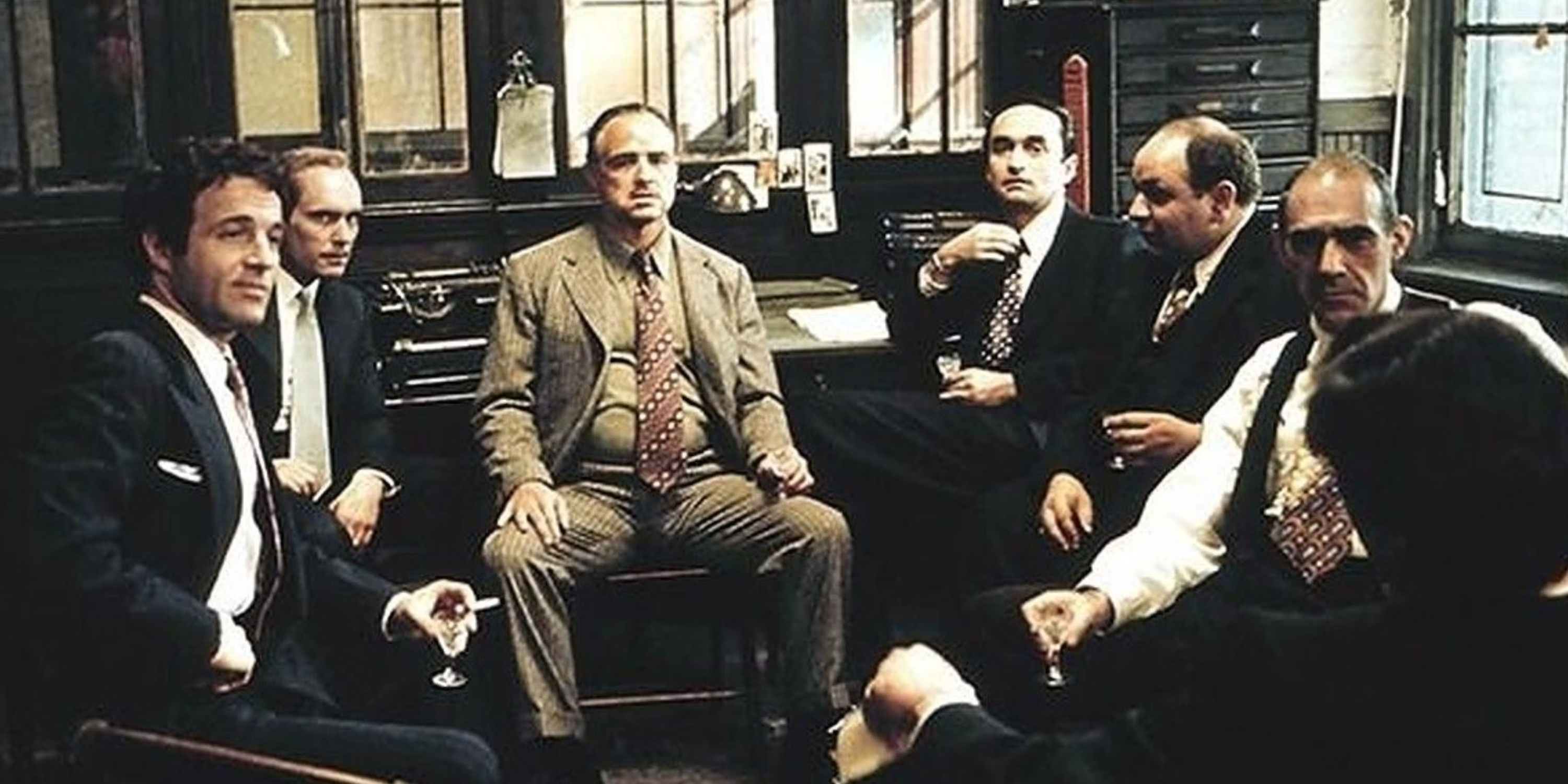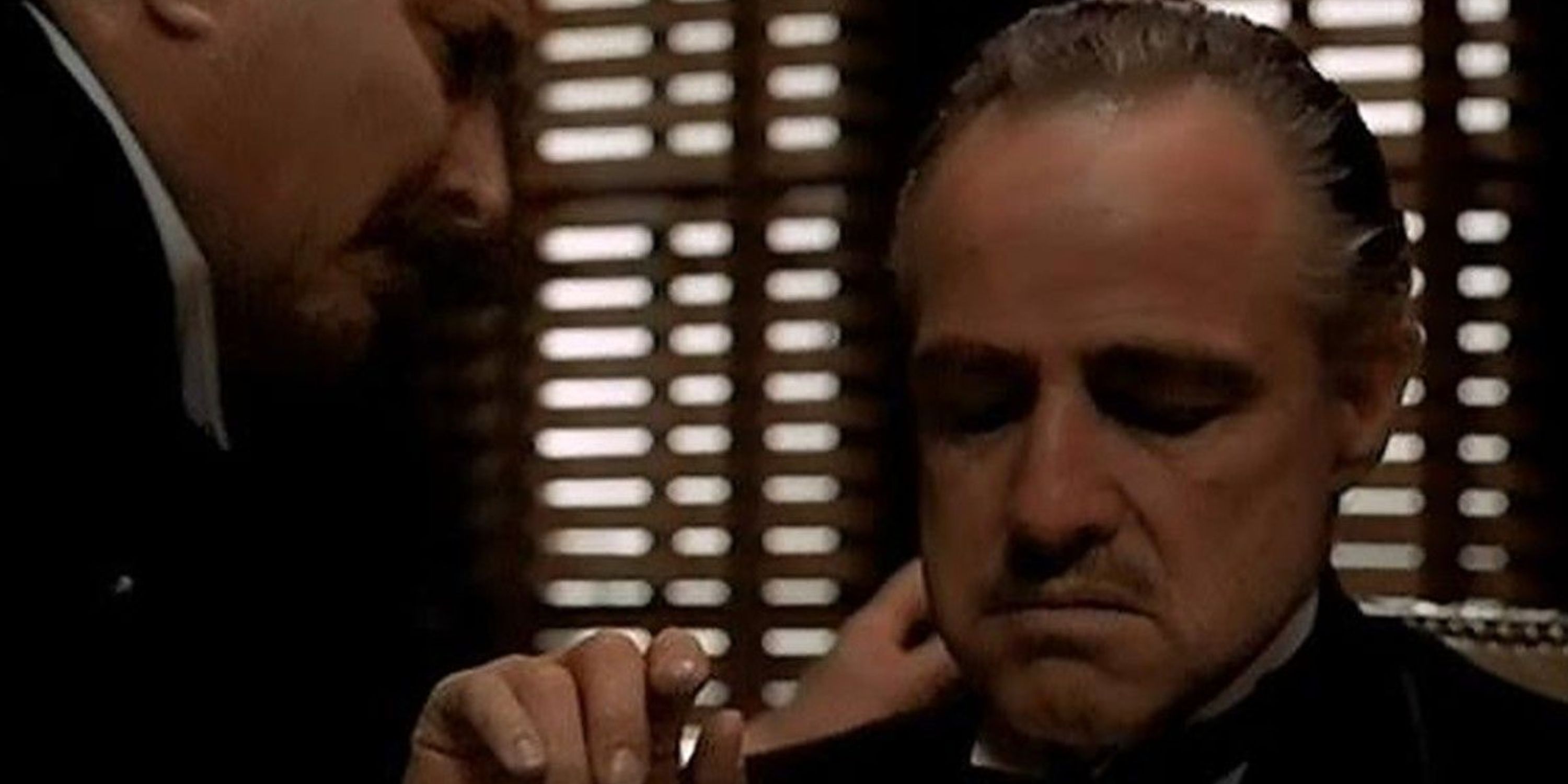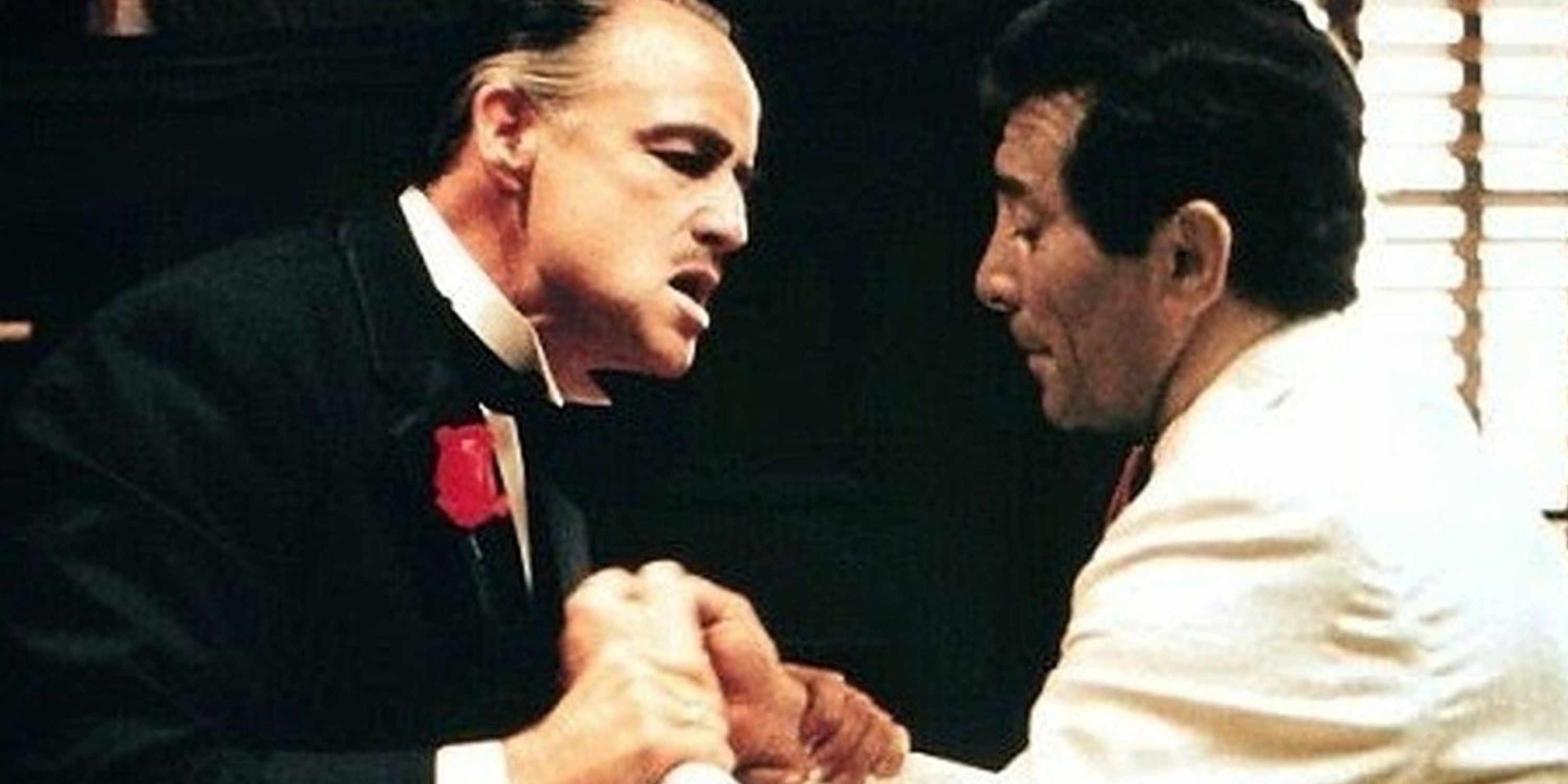
Why Paramount Didn’t Want To Cast Marlon Brando In His Oscar-Winning The Godfather Role
It’s hard to believe that at one point Paramount didn’t want to cast Marlon Brando in his Oscar-winning role in The Godfather. In what has become a career-defining performance amidst a legacy of terrific roles, Brando played Vito Corleone, the patriarch and don of the Corleone crime family. His story, (also outlined in flashbacks with Robert DeNiro as a young Vito Corleone), not only shapes the narrative of Francis Ford Coppola’s drama but its subsequent sequels, with the don’s decisions casting a long shadow over the saga of the next generation and beyond.
 Brando’s performance has been a part of the pop culture zeitgeist since 1972 when it anchored a bevy of strong performances by DeNiro, Al Pacino, Robert Duvall, James Caan, and more playing characters in The Godfather trilogy. Brando won the Academy Award for Best Actor in 1973, and in the years since Vito Corleone has become the standard archetype of the Italian mob boss. A special edition of “Fresh Air” on NPR mines the secrets of why Paramount didn’t want Brando and what a brazen Coppola had to do to change the studios’ minds.
Brando’s performance has been a part of the pop culture zeitgeist since 1972 when it anchored a bevy of strong performances by DeNiro, Al Pacino, Robert Duvall, James Caan, and more playing characters in The Godfather trilogy. Brando won the Academy Award for Best Actor in 1973, and in the years since Vito Corleone has become the standard archetype of the Italian mob boss. A special edition of “Fresh Air” on NPR mines the secrets of why Paramount didn’t want Brando and what a brazen Coppola had to do to change the studios’ minds.Paramount Didn’t Want Marlon Brando In The Godfather Due To His Reputation & Box Office Flops
Paramount gave Francis Ford Coppola the task of adapting Mario Puzo’s bestselling novel to film because they wanted an Italian-American attached to it, but fought him about his methodology. Not only did he set parts of it in the ’40s which went against the studios’ desires to have it be contemporary like the book was, but they didn’t want Brando to be Don Corleone. By 1972, Brando was a far cry from the chiseled matinée idol he’d been in On The Waterfront, Streetcar Named Desire, and The Wild One and been in a series of box-office flops.
Brando had been acquiring a reputation for not just box-office flops such as Burn and not being able to draw crowds to the cinema like he used to. Puzo wanted Brando as Don Corleone, going so far as to write Brando a letter pleading with him to take the part, but Paramount wanted Danny Thomas. Brando wrote back to Puzo that no studio would hire him and that he should wait to team up with Coppola to get him the part.
How Francis Ford Coppola Got His Way & Cast Marlon Brandon In The GodfatherWhen he directed The Godfather Francis Ford Coppola was 29 and had no influence over major studios. “I was young and had no power,” he explained, “so [the studio] figured they could just boss me around.” Nevertheless, he fought back against their decision to veto casting Brando because he wanted to get “one of the greatest actors in the world.” Coppola was able to get Paramount on his side by accepting the studios’ 3 demands; Brando had to do a screen test, he had to have a million-dollar bond attached to him guaranteeing that he wouldn’t engage in any misbehavior, and he would only get paid at scale.

Coppola didn’t want to insult Brando by making him audition, but Brando agreed to a mockup scene at his home to lay Coppola’s anxieties to rest. Ever the consummate and dedicated performer, he applied black shoe polish to his hair and, because Corleone had been shot in the throat, adopted a raspy lisp to his voice for some of Don Corleone’s best quotes. The final touch was putting cotton balls in his mouth to “look like a bulldog,” which he wore during a cast dinner in which the Corleone family members ate and improvised in character.
The Godfather Wouldn’t Have Been As Great Without Marlon Brando
Marlon Brando was from the Golden Age of Hollywood and had the gravitas to pull off an important role like Vito Corleone. He not only needed to be revered within the Corleone family but also by the actors who portrayed all of its members. Without Brando’s prominent screen presence grounding the gratuitous violence and the many different personalities populating the narrative (particularly Pacino’s Michael Corleone) The Godfather wouldn’t have been as respected or influential.
Coppola mentions in the interview that the theme of The Godfather is succession, of a king passing his kingdom to his sons, so who better than Brando, the embodiment of Hollywood royalty, to sum up the character of Vito Corleone. He utilized a natural acting style in the ’40s and ’50s that wouldn’t be popular until the ’70s when he was passing the torch to emerging talents like Pacino and DeNiro. What he brought to the character of Vito Corleone helped reaffirm not only his own tremendous talent but confirmed the abilities of then-unknown performers, and secured The Godfather as a cinematic triumph for its tenacious and gifted director.